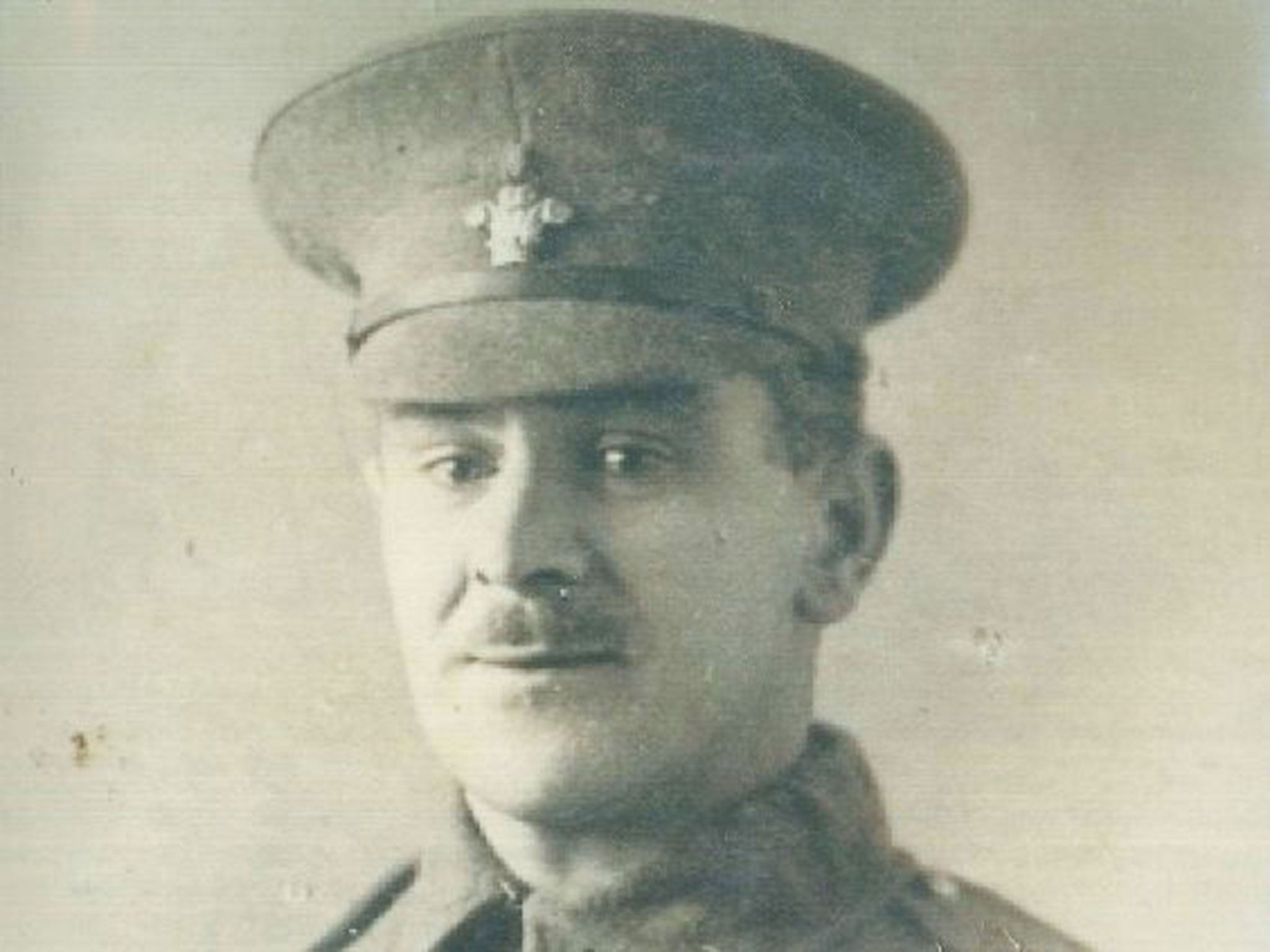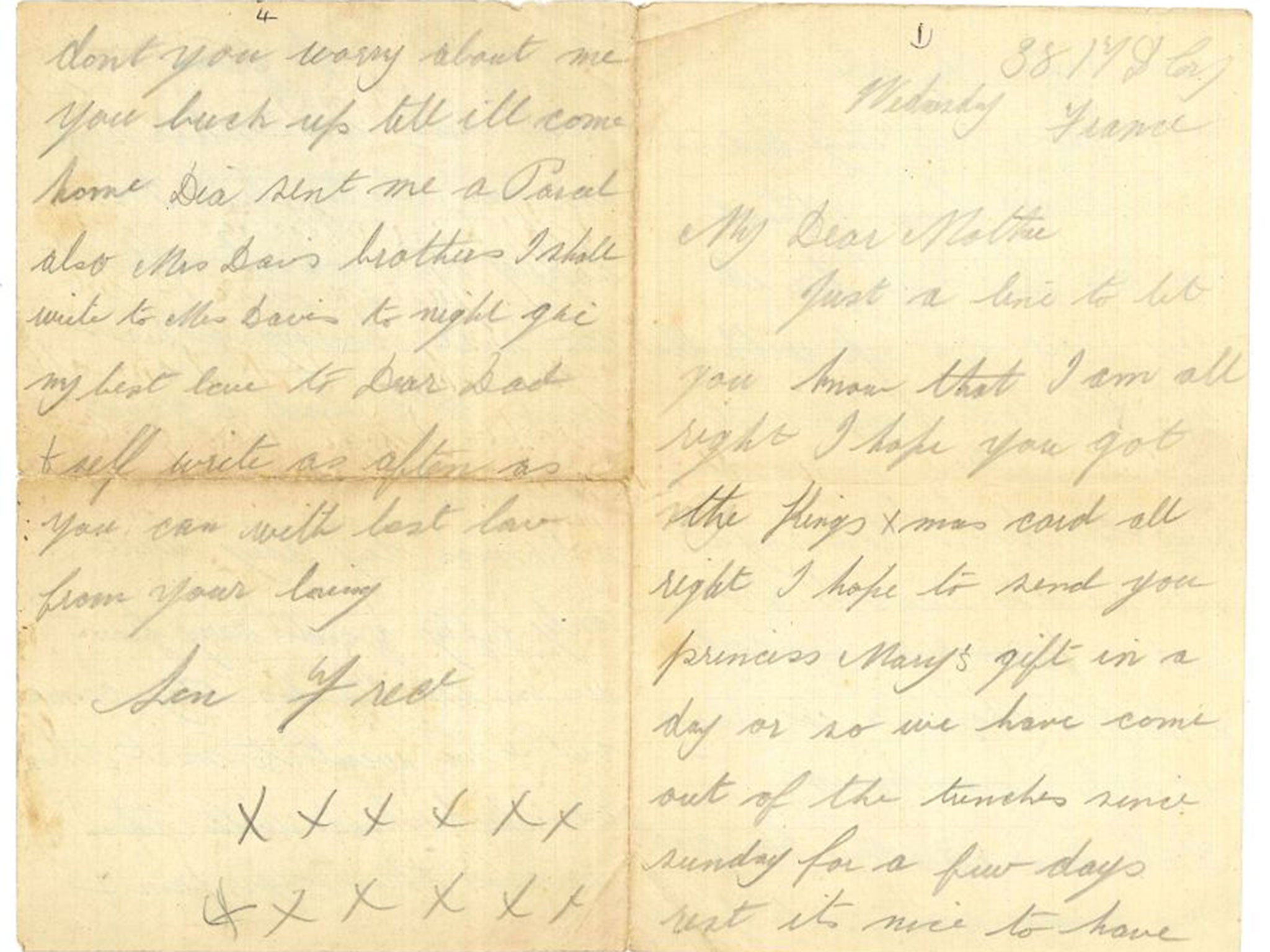Poignant WW1 letters of British soldier recall Christmas Day truce
Private Frederick Davies of the Royal Welsh Fusiliers spoke of sharing ‘cigs, jam and corn beef’ with the Germans during the Christmas truce

Your support helps us to tell the story
From reproductive rights to climate change to Big Tech, The Independent is on the ground when the story is developing. Whether it's investigating the financials of Elon Musk's pro-Trump PAC or producing our latest documentary, 'The A Word', which shines a light on the American women fighting for reproductive rights, we know how important it is to parse out the facts from the messaging.
At such a critical moment in US history, we need reporters on the ground. Your donation allows us to keep sending journalists to speak to both sides of the story.
The Independent is trusted by Americans across the entire political spectrum. And unlike many other quality news outlets, we choose not to lock Americans out of our reporting and analysis with paywalls. We believe quality journalism should be available to everyone, paid for by those who can afford it.
Your support makes all the difference.A British soldier’s account of the famous Christmas truce of 1914 has been revealed in a collection of letters donated to the Imperial War Museum.
Frederick James Davies, a private in the 2nd Battalion Royal Welsh Fusiliers, spoke of having "a good chat with the Germans on Xmas day" and giving them "cigs, jam and corn beef."
"They were only fifty yards away from us in the trenches. They came out and we went to meet them. We shook hands with them," he wrote. "They also gave us cigars but they didn’t have much food. I think they are hard up for it. They were fed up with the war."

In some parts of northern France soldiers left their trenches on Christmas day in 1914 to meet the enemy in no man’s land and exchange gifts – with some famously playing football.
The letters were discovered by his granddaughter, Jane Oliver, after the death of her mother, who was Davies’s eldest daughter.

His youngest daughter, Audrey Trenchard, now 86, said he had never spoken about his experiences in the war.
"We were so thrilled that Jane had managed to find them and keep them.
"I didn't know about it, being the youngest I hadn't heard any of this. It's wonderful for me to find out about it," she said.
Her father's letter was a reminder "that the Germans weren't all bad, they were family men like ours were, it's very important to keep this sort of thing alive", she said.
Private Frederick James Davies left the army in 1915 after a trench caved in on him, shattering his spine and leaving him unable to work. He married in 1919 and had three children.
Join our commenting forum
Join thought-provoking conversations, follow other Independent readers and see their replies
Comments